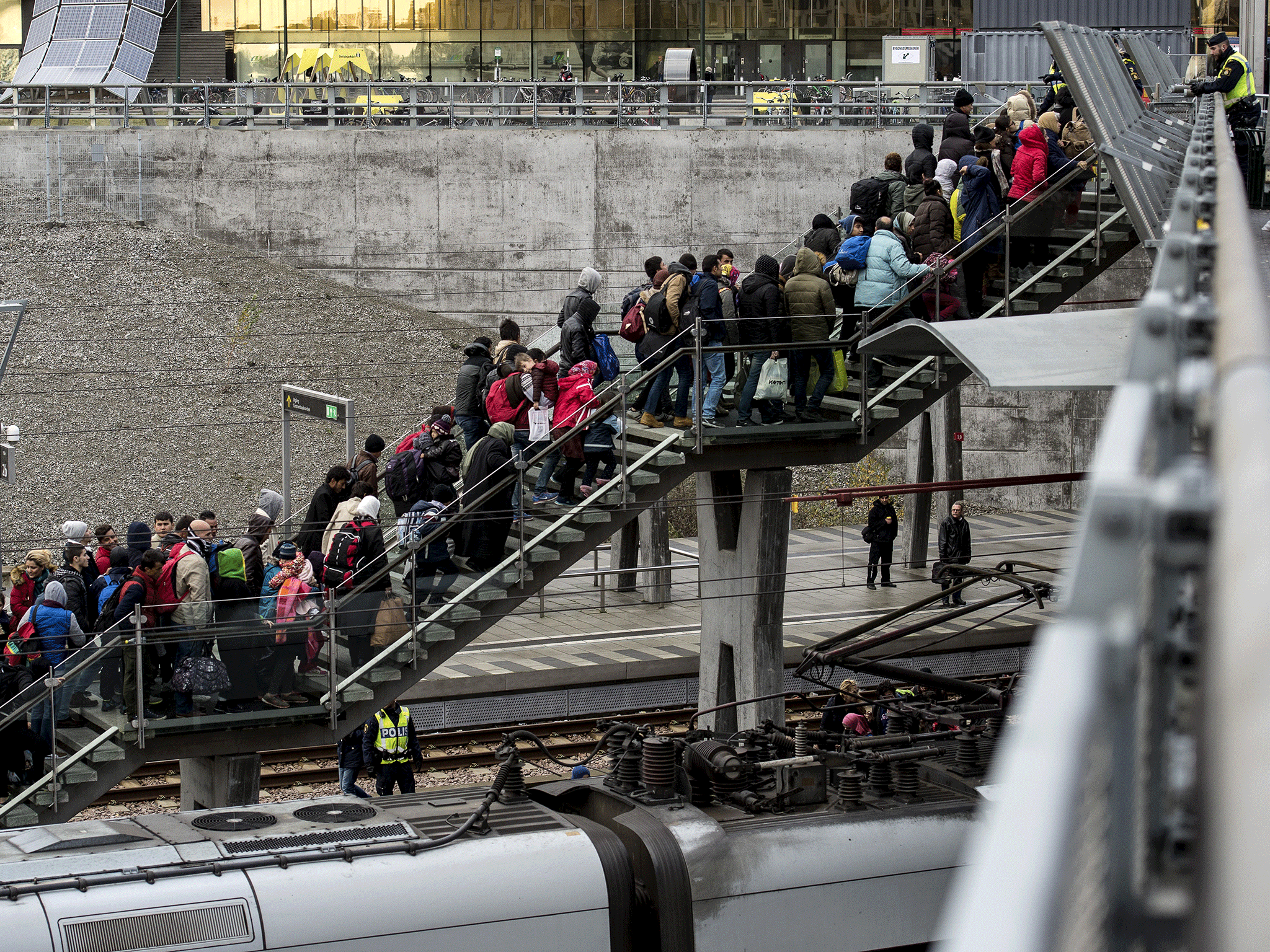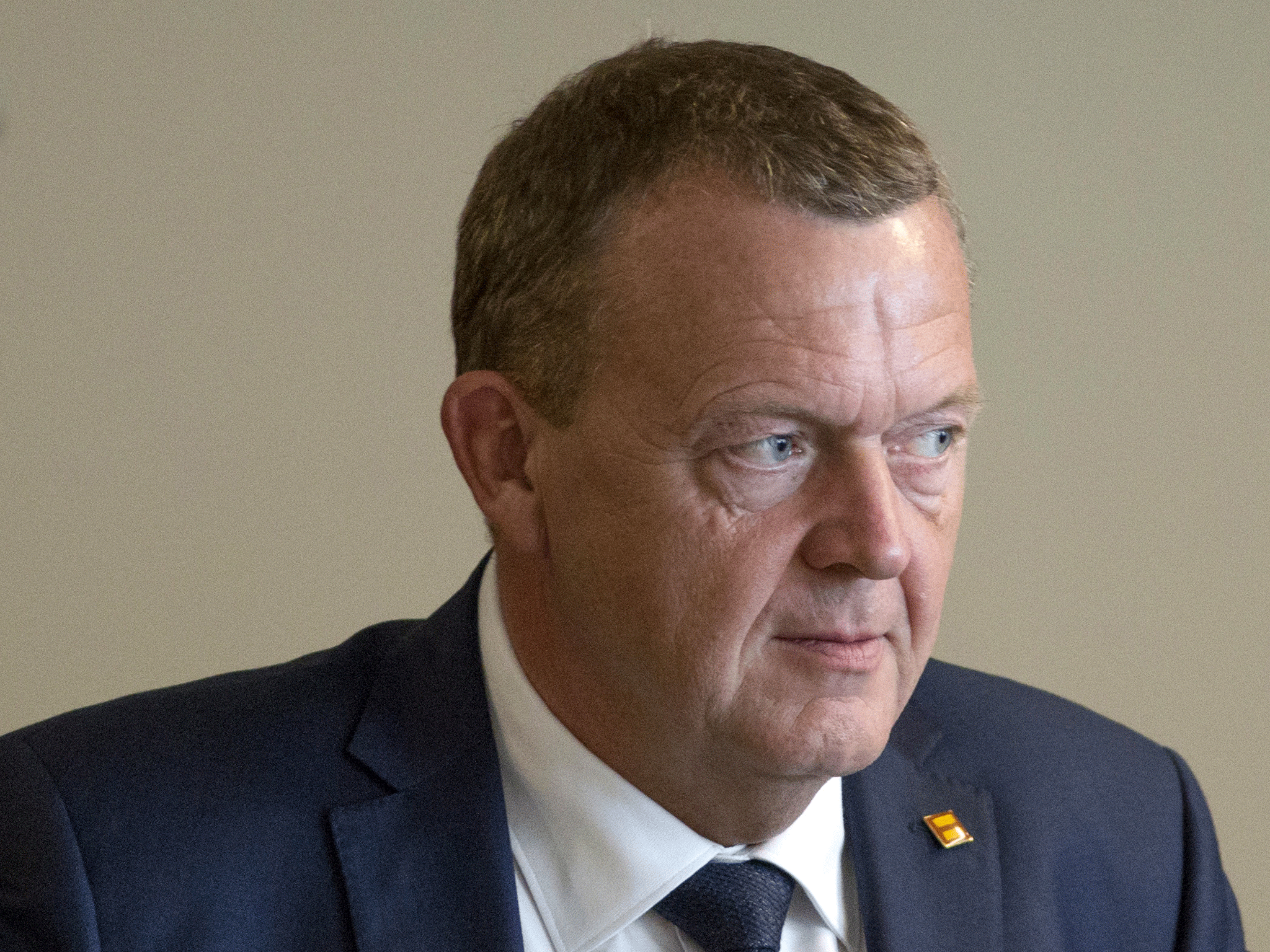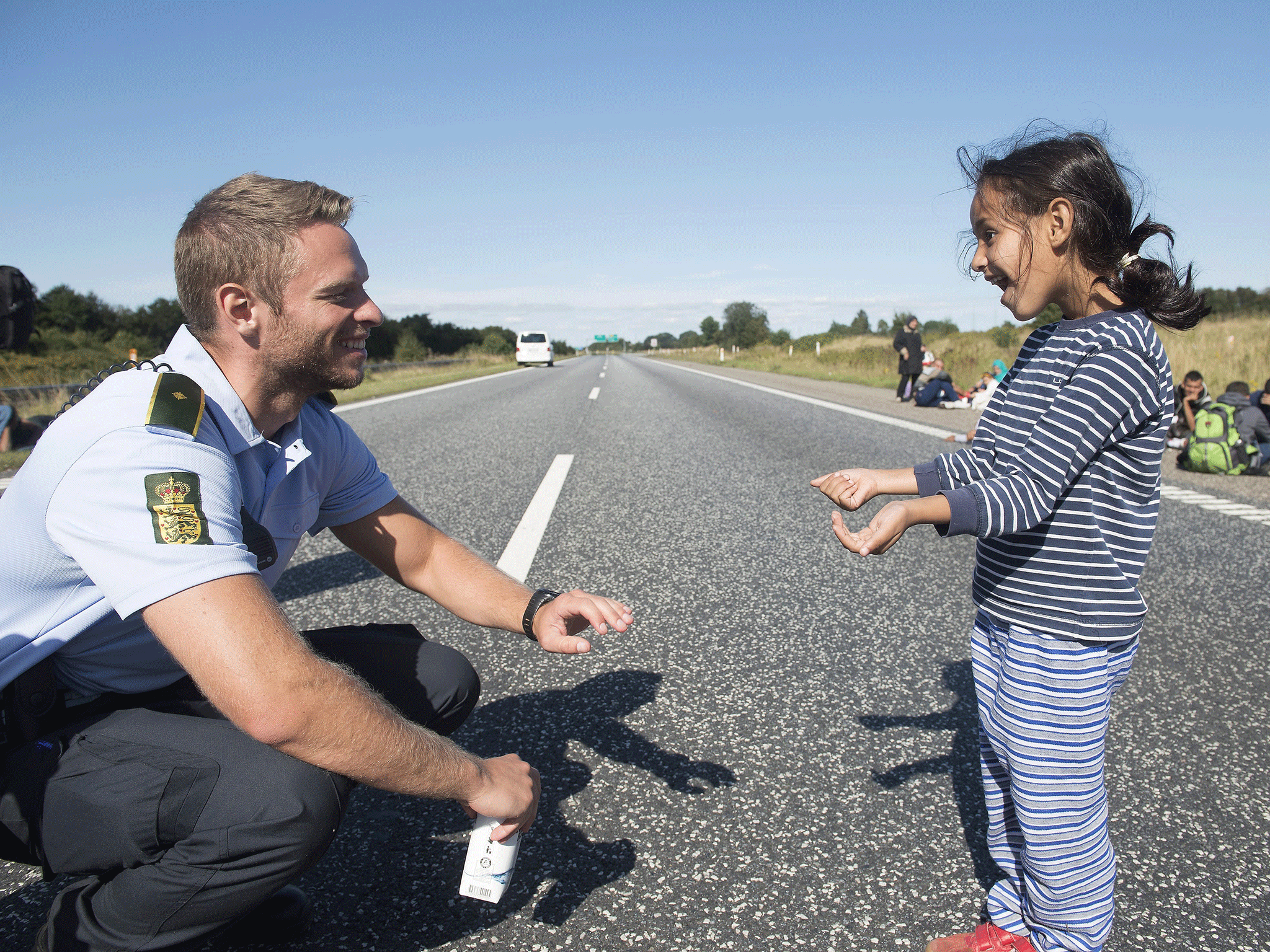Denmark says plan to seize refugee cash makes them 'equal' to Danish citizens
Critics insist Danish citizens would never be treated in this way

Denmark has defended a plan to remove asylum seekers' cash and jewellery from them, saying it puts refugees on an "equal" footing with other Danes.
Amid media scrutiny and UN condemnation of a number of migration-related reforms, the Danish government is on the brink of passing a law to seize cash and items worth more than about £1,000 from refugees, according to The Local.
Yet ruling right-wing party Venstre and anti-immigration coalition partners the Danish People's Party (DPP) have said claims the measure is a violation of international commitments and human rights shows the law has been "grossly misunderstood."
Anders Vistisen, an MEP from the DDP, said Danish citizens who suddenly become unemployed are also expected to sell their most valuable possessions to receive state support.
"The new law is about creating equality between migrants and Danes, so that everyone under the welfare system has the same possibility to receive public benefits," he told The Local.

Other proponents of the bill say Denmark is "expensive" and the seizing of cash and valuables amounts to the high taxes imposed on all citizens to ensure a strong welfare state and free education for all.
The move mirrors similar measures in southern Germany, where valuables are also being taken from refugees on arrival in Bavaria, according to Bild.
But even the unemployed would never have their property searched and their goods seized in Denmark, say critics.
Zachary Whyte, an asylum and intergration researcher at the University of Copenhagen, said the bill did not make asylum seekers equal to native Danes - and other parts of the reforms were even more worrying than the plans to seize cash and items.
"Human rights organisations have focused more on other elements of the bill," he told The Local.
"These include a delay in processing family reunification for some refugees."

The bill, which went through its final reading on January 21 and is expected to be passed in a parliamentary vote on Tuesday, will lengthen the amount of time it takes for refugees to win asylum to three years.
This could mean refugees might have to wait five years or more before their spouses and children can join them in safety in Denmark.
Representatives of prime minister Lar Lokke Rasmussen's party, which received less than one-fifth of the 2015 general election vote, and the Danish People's Party, which received 21.1 per cent, will face the EU parliament and the UN to explain its decision.
Human rights and freedom-of-movement principles were not applicable when situations changed, said Venstre's foreign affairs spokesman.
"The conventions that Denmark and many other countries signed many years ago, we signed based on a global situation that was not the global situation of today," he said.
The Social Democrat party, Denmark's centre-left opposition, has hit a 50-year low over the refugee crisis, according to a major poll in Denmark.
Join our commenting forum
Join thought-provoking conversations, follow other Independent readers and see their replies
Comments
Bookmark popover
Removed from bookmarks